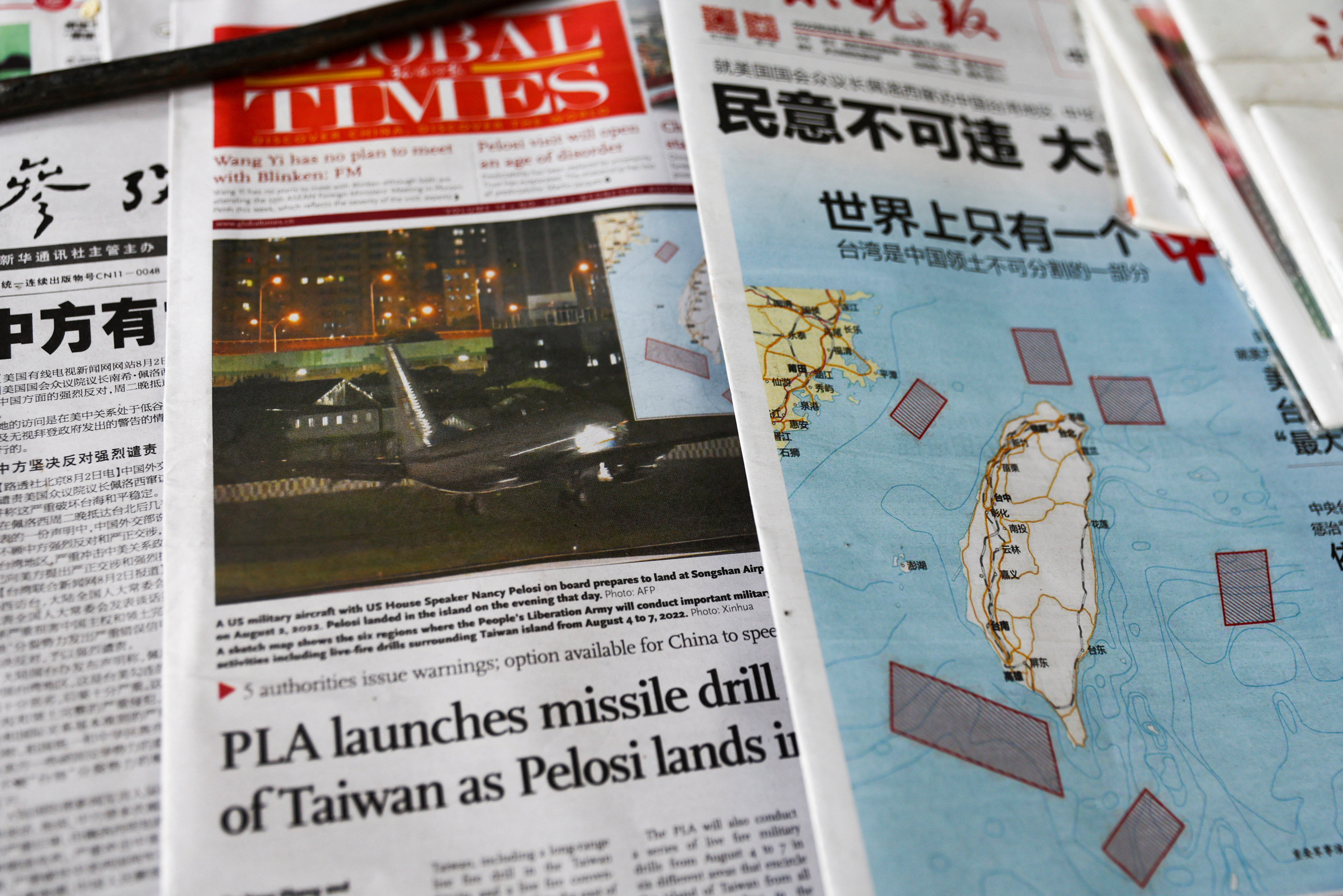China’s ‘Strong Punishment’ To Taiwan, Starts 2 Days Of All Round – Army, Navy, Airforce, Drills Around Taiwan

According to Chinese state media reports, China has commenced two days of military exercises in the waters and airspace surrounding the self-governing island of Taiwan.
Military spokesman Colonel Li Xi stated that the joint exercises, which involve the army, navy, air force, and rocket force, are a “strong punishment for the separatist acts of ‘Taiwan independence’ forces and a stern warning against interference and provocation by external forces.”
The state-run Xinhua news agency reported that the Eastern Theatre Command of the People’s Liberation Army initiated the drills at 7:45 am on Thursday.
These exercises are taking place in the Taiwan Strait, and to the north, south, and east of Taiwan, as well as around the islands of Kinmen, Matsu, Wuqiu, and Dongyin.
The display of military strength, code-named Joint Sword- 2024A, occurs three days after Taiwan’s new president, William Lai Ching-te, took his oath of office.
Beijing has not ruled out the use of force to achieve unification and has reacted angrily to the inauguration of Lai, whom it labels a “troublemaker” and a “separatist.”
 Reactions And Response
Reactions And Response
In response to China’s drills, Taiwan’s Ministry of Defence announced that it had placed its military on “high alert,” describing the exercises as “irrational provocations and actions that disrupt regional peace and stability.”
Bonnie Glaser, managing director of the Indo-Pacific program at the German Marshall Fund of the United States, noted that Beijing’s reaction to Lai’s election victory in January had been relatively restrained.
“The PRC evidently decided to wait until he delivered his inaugural address and then determine their response,” she said.
“It’s clear that Beijing strongly objects to what they view as an attempt to develop a comprehensive ‘Taiwan independence’ narrative with the goal of altering the nature of cross-strait relations. I expect that they will roll out a series of military, political, and economic measures over the coming weeks and months.”
In Lai’s first public address after taking his oath, he stated, “The Republic of China, Taiwan, is a sovereign and independent nation with sovereignty resting in the people,” emphasizing that his government would make no concessions on its democracy and freedoms.
He urged Beijing to “stop its aggression against Taiwan” and to strive to “maintain peace and stability in the Taiwan Strait and the region.”
The following day, Chinese Foreign Minister Wang Yi reacted strongly. “The ugly acts of Lai Ching-te and others who betray the nation and their ancestors are disgraceful,” China’s Ministry of Foreign Affairs quoted Wang as saying at a foreign ministers’ meeting of the Shanghai Cooperation Organisation in Kazakhstan.
He asserted that nothing could stop China from achieving “reunification” and bringing Taiwan “back to the motherland,” adding, “All Taiwan independence separatists will be nailed to the pillar of shame in history.”
In an editorial on Wednesday, the state-run Global Times tabloid described Lai’s first speech as president as “vile behavior,” claiming that his speech was “filled with hostility and provocation, lies and deception.”
 China Weighing On Strong Punishment
China Weighing On Strong Punishment
China has intensified its military activities around Taiwan since Tsai Ing-wen, Lai’s predecessor and a member of the Democratic Progressive Party (DPP), was first elected president in 2016.
The aggression often increases when Taiwanese officials meet with politicians from the United States, a key ally of Taiwan. An unprecedented series of war games occurred after then-US House Speaker Nancy Pelosi visited the island in August 2022.
Taiwan’s Ministry of Defence stated that such actions have caused “substantial harm to global peace and stability.” It also claimed that the latest military exercises were conducted “under false pretenses” and underscored China’s “hegemonic nature.”
Wen-ti Sung, a specialist in Taiwan and China and a non-resident fellow at the Atlantic Council’s Global China Hub, suggested that more might be forthcoming.
“This round of military drills is code-named ‘Joint Sword-2024A’,” he noted. “The suffix ‘A’ suggests there may be future rounds B, and possibly C. Beijing is showing muscle in the immediate wake of Lai’s presidential inauguration to unmistakably signal Beijing’s displeasure. But this is the ‘signal’. The real ‘punishment’ is yet to come.”
China views the DPP as “separatists” intent on independence. Tsai and Lai, whose victory marked a historic third term for the DPP, maintain that the people of Taiwan should be the ones to decide their future.

The Complicated History
China and Taiwan have a complex and contentious history rooted in the Chinese Civil War.
After the war ended in 1949, the Communist Party, led by Mao Zedong, established the People’s Republic of China (PRC) on the mainland.
The defeated Nationalist government, led by Chiang Kai-shek, retreated to Taiwan and continued to claim to be the legitimate government of all China, forming the Republic of China (ROC).
For decades, both the PRC and the ROC claimed to be the true government of China, leading to international diplomatic challenges.
Initially, many countries and the United Nations recognized the ROC as the legitimate government.
However, in 1971, the UN transferred recognition to the PRC, and since then, most countries, including the United States, have established diplomatic relations with Beijing while maintaining unofficial ties with Taiwan.
Despite its de facto independence, Taiwan has not declared formal independence, largely due to the PRC’s stance that such a move would provoke a military response.
Beijing considers Taiwan a breakaway province and insists on reunification, by force if necessary.
Meanwhile, Taiwan has evolved into a vibrant democracy with a distinct identity, fueling tensions over its future status.




